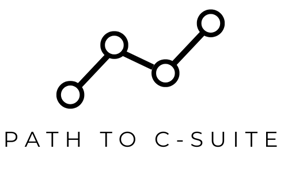Top Tips for Preparing for a C-Suite Interview
3/14/20255 min read


Understanding the C-Suite Role
The C-suite, a term that encompasses the highest executive roles within an organization, includes positions such as the Chief Executive Officer (CEO), Chief Financial Officer (CFO), Chief Operating Officer (COO), and Chief Marketing Officer (CMO). Each of these roles holds distinct responsibilities and expectations, which are pivotal for candidates to understand as they prepare for interviews. Grasping the nuances of these roles not only aids in aligning one's personal experience and skills but also enables candidates to tailor their responses to suit the specific demands of each position.
The CEO holds ultimate accountability for the organization’s overall success, shaping its vision, strategic planning, and operational direction. In contrast, the CFO primarily manages the company’s finances, focusing on financial strategy, risk assessment, and budget management, thereby requiring a strong aptitude for financial analysis and strategic foresight. Meanwhile, the COO is responsible for overseeing day-to-day operations, ensuring that business operations run smoothly, efficiently, and align with the company’s strategic objectives. This role often requires strong leadership and operational expertise. Lastly, the CMO’s primary focus is on marketing strategies and initiatives designed to enhance brand awareness, customer engagement, and market share, demanding creativity and an in-depth understanding of market trends.
Understanding these distinctions allows candidates to emphasize relevant experiences and align their competencies with the expectations of hiring committees. It is essential to showcase not only direct experience but also how your leadership style and decision-making processes can contribute effectively to the specific goals of the C-suite role being pursued. By demonstrating a solid comprehension of each position’s responsibilities and how they interconnect, candidates can significantly enhance their suitability and appeal during the interview process.
Researching the Company and Industry
Thorough research on the target company and its respective industry is a fundamental step in preparing for a C-suite interview. This preparation reflects not only the candidate's diligence but also their genuine interest in the organization. It is vital to delve into various aspects of the company, including its core values, culture, and financial performance. Understanding the company's mission and vision statements can provide insights into what drives its business decisions and how potential leaders can contribute towards achieving those objectives.
When assessing the company’s culture, consider looking at employee reviews on platforms like Glassdoor, as well as engaging with current or former employees through professional networks like LinkedIn. Gathering qualitative data about the work environment and leadership style can help candidates align their responses with the expectations of the company. Furthermore, analyzing recent performance metrics and financial reports can show a candidate's ability to interpret data and understand how it positions the company in its industry.
Equally important is keeping abreast of recent news and updates concerning the organization. This information could come from press releases, news articles, and the company's own communications. It is beneficial to look for information on strategic initiatives, partnerships, or challenges faced by the business. Such insights can serve as conversation starters during the interview and demonstrate a candidate's strategic thinking and awareness of the company’s context.
Moreover, one should also focus on understanding industry trends and the competitive landscape. Sources such as industry reports, market analysis, and trade publications can provide invaluable information regarding where the company stands against its competitors. By synthesizing this information into clear talking points, candidates can convey their preparedness and ability to navigate complex business environments effectively during the C-suite interview.
Developing Your Personal Brand and Value Proposition
In the competitive landscape of C-suite interviews, developing a robust personal brand is essential for candidates aiming to stand out. Personal branding involves showcasing who you are, the values you embody, and the unique skills and experiences that position you as a competent leader. Reflecting on your career journey enables you to identify your unique value proposition—what distinguishes you from other candidates vying for the same position. This self-awareness not only strengthens your confidence but also enables effective communication of your qualifications during the interview process.
One crucial aspect of personal branding is the articulation of success stories that highlight your achievements and leadership capabilities. These narratives should be tailored to align with the company's goals, culture, and the specific requirements of the C-suite role. Candidates should employ the STAR method (Situation, Task, Action, Result) to illustrate how they have successfully navigated challenges and delivered tangible results in previous positions. By preparing well-structured stories that resonate with the needs of the organization, candidates can demonstrate their potential impact and the innovative solutions they bring to the table.
Apart from crafting compelling success stories, refining your elevator pitch is also vital. This succinct presentation of your brand should encapsulate relevant skills and experiences, conveying your distinct advantages in a clear and concise manner. Tailoring your elevator pitch to reflect the values and priorities of the prospective organization reinforces your alignment with their vision. Practice delivering this pitch until it flows naturally, ensuring it addresses the core interests of the interviewers while effectively showcasing your executive capabilities. By honing both your personal brand and value proposition, you will be better equipped to leave a lasting impression during the interview and convey your worth as a future leader in the organization.
Mastering Interview Techniques and Preparation Strategies
Preparing for a C-suite interview necessitates a comprehensive strategy that includes mastering interview techniques tailored specifically for executive roles. C-suite candidates should emphasize behavioral and situational interview techniques, as these are pivotal in assessing their leadership abilities and strategic mindset. Behavioral interview questions often prompt candidates to relate past experiences, enabling them to demonstrate decision-making skills and conflict resolution abilities that are essential at an executive level. Candidates should prepare by reflecting on past scenarios where they effectively led teams or initiated change, utilizing the STAR method (Situation, Task, Action, Result) to structure their responses succinctly.
Furthermore, situational questions, which present hypothetical challenges, are crucial for assessing how candidates envision addressing real-world issues. Preparation for these inquiries requires candidates to engage with industry-specific scenarios and articulate strategic solutions. A clear understanding of the organization’s mission and strategic goals allows candidates to tailor their responses to align with the company's vision, demonstrating both problem-solving capabilities and a forward-thinking perspective.
Equally important in this preparation is awareness of body language and communication style. Strong non-verbal communication can convey confidence and decisiveness, traits that are indispensable for C-suite positions. Candidates should practice maintaining eye contact, using open body language, and adopting a calm and measured tone during their interviews. Additionally, post-interview follow-up strategies, such as sending thank-you notes or emails, play a significant role in reinforcing the candidate’s enthusiasm and gratitude for the opportunity, facilitating a positive impression.
Moreover, engaging in mock interviews can greatly enhance one’s readiness. Enlisting the help of mentors or colleagues to conduct practice sessions can provide valuable feedback and insights, allowing candidates to refine their responses and improve self-presentation. Through diligent preparation that combines understanding the nuances of executive-level questioning and practicing effective delivery, candidates can significantly bolster their confidence, ensuring they approach their C-suite interview with poise and preparedness.
Contact & About
Newsletter
© 2025. All rights reserved.
Legal
About Us


